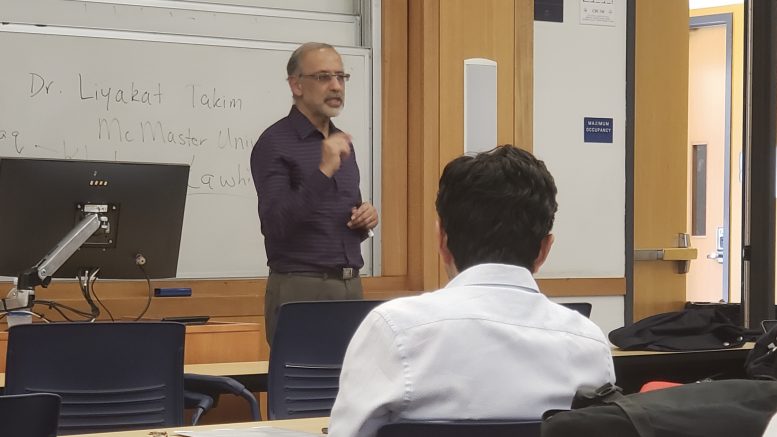Kendra Campbell/Contributing Writer
With more and more community leaders adding climate change to their list of priorities to address, Liyakat Takim, a professor at McMaster University in Hamilton, Canada, aims to keep the ball rolling by pushing religious leaders of Islam to join the discussion as well.
Takim discussed climate change from an Islamic perspective on Oct. 10 during the ‘Contemporary Environmental Crisis: An Islamic Perspective’ lecture, which was sponsored by FIU’s Mohsin & Fauzia Jaffer Center for Muslim World Studies and the Department of Religious Studies.
The conversation surrounding what could happen to our planet in the next thousands of years started decades ago. However, the projections have now switched to as little as 50 to 100 years.
For South Floridians, the reality becomes even more daunting when realizing that places like Miami will bear the brunt of these changes.
With porous limestone complicating the state’s future, rising sea levels due to melting ice caps have led scientists to predict that Florida’s coast will acquire about six more inches of water. It’s projected that the Magic City and many of its neighbors will be completely underwater within 80 years, according to a study done by sealevelrise.org.
Activists and community leaders alike have made it their responsibility to push environmental conservationism to the top of social and political agendas, stressing the importance of changing people’s attitudes and habits to become more environmentally conscious.
Takim is pushing that conversation into the realm of religion, reminding Muslims of their duty to take care of the planet through the teachings of Islam.
Takim is no stranger to discussing progressive topics like women’s rights and organ donations in the world of Islam. He feels that many Muslim scholars do not address the issue of the environmental crisis enough and because of old fashion thinking some don’t even see it as much of a concern.
“You’ll find many Muslim scholars who will talk a lot about the ways in which to kill an animal, but not about how to save them,” he said.
Similar criticisms are also upheld by those that state that religious teachings, whether indirectly or not, have played a role in backing the ideology humans have about their place in nature’s hierarchy.
While Takim doesn’t agree that the problem is with the teachings themselves, saying that the Quran explicitly talks about how people should regard the Earth around them, he does acknowledge that people misinterpret the teachings.
“There are many Muslims that view the world and its animal inhabitants as theirs to do with as they please,” he said. “They believe that nature needs humans, when in fact it’s the other way around.”
The lecture continued with Takim pointing out several instances in the Quran that emphasize the responsibility of Muslims to conserve and respect nature.
As to how Muslims can tackle the environmental crisis, Takim says that more Muslim scholars need to join the conversation. If this were to happen, Takim believes Islamic nations will follow and take appropriate action.






Be the first to comment on "Professor Discusses Islamic Perspective on Climate Change"